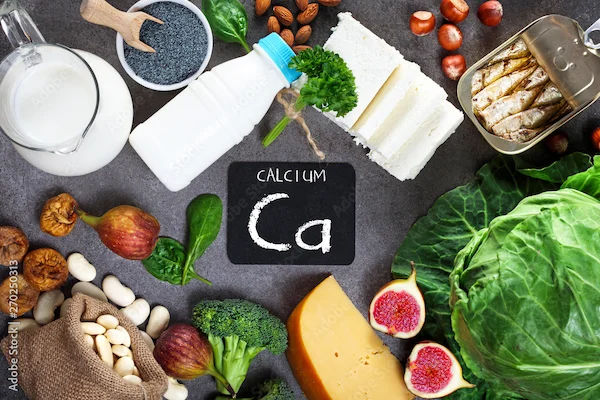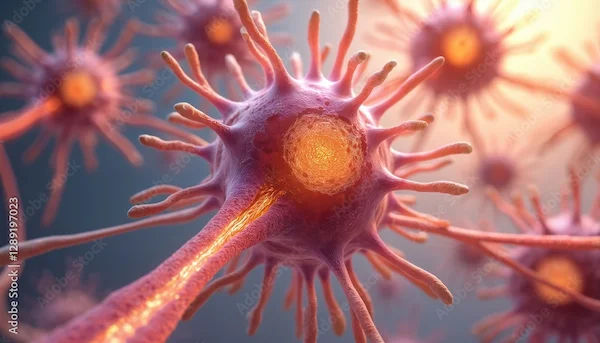Sodium's Function in the Human Body
Know about the sodium function and tests for the human body, normal sodium levels in the body, signs of abnormal levels and how to maniatin healthy sodium levels.


Introduction
Sodium is a mineral that plays a crucial role in keeping our bodies functioning properly. While we often hear about the dangers of too much sodium, it’s also essential for our health in the right amounts. Let’s explore why sodium is important, how it affects our bodies, and how to maintain a healthy balance.
Why Is Sodium Important?
Sodium is an electrolyte, which means it helps conduct electrical signals in the body. It works closely with other minerals like potassium to regulate key bodily functions, including:
1. Maintaining Fluid Balance – Sodium helps control the amount of water in and around your cells, ensuring proper hydration.
2. Nerve Function – It aids in transmitting nerve signals, allowing your brain to communicate with muscles and organs.
3. Muscle Contraction – Sodium is necessary for muscle movement, including your heartbeat.
4. Blood Pressure Regulation – It influences blood volume, which affects blood pressure.
Consult a General Physician for Personalised Advice
How Much Sodium Do We Need?
The World Health Organisation (WHO) recommends consuming less than 2,000 mg (about 1 teaspoon of salt) per day for adults. However, many people consume much more than this, mostly from processed and restaurant foods.
Signs of Too Much or Too Little Sodium
High Sodium (Hypernatremia) Symptoms
It includes:
- Extreme thirst
- Swelling (oedema) in hands, feet, or face
- High blood pressure
- Headaches
- Fatigue
- Low Sodium (Hyponatremia) Symptoms
- Nausea or vomiting
- Confusion or dizziness
- Muscle cramps or weakness
- Seizures (in severe cases)
What Causes Sodium Imbalance?
High Sodium Intake (Common Causes)
It includes:
- Eating too much processed food (chips, canned soups, fast food)
- Excessive salt in cooking
- Not drinking enough water
- Low Sodium Levels (Common Causes)
It includes:
- Drinking too much water (diluting sodium levels)
- Certain medications (diuretics, antidepressants)
- Kidney or heart problems
- Excessive sweating without electrolyte replacement
How to Maintain Healthy Sodium Levels
Healthy sodium levels can be maintained by:
1. Reduce Processed Foods
- Choose fresh fruits, vegetables, and whole grains.
- Read food labels and pick low-sodium options.
2. Cook at Home More Often
- Use herbs and spices (like garlic, pepper, or lemon) instead of salt.
- Limit soy sauce, pickles, and packaged sauces.
3. Stay Hydrated (But Not Overhydrated)
- Drink water throughout the day, but avoid excessive intake in a short time.
- If sweating a lot (exercise, hot weather), consider electrolyte drinks (in moderation).
4. Monitor Blood Pressure
- High sodium can raise blood pressure, increasing heart disease risk.
- Get regular check-ups if you have hypertension.
5. Know When to Seek Help
If you experience severe symptoms like confusion, seizures, or extreme swelling, consult a doctor immediately.
Final Thoughts
Sodium is essential for life, but balance is key. By eating mindfully, staying hydrated, and monitoring your health, you can keep your sodium levels in check and support overall well-being.
Consult a General Physician for Personalised Advice
Consult a General Physician for Personalised Advice

Dr. M L Ezhilarasan
General Practitioner
6 Years • MBBS
Visakhapatnam
Apollo 24|7 Clinic - Andhra Pradesh, Visakhapatnam

Dr. Mohamed Azeem
General Physician/ Internal Medicine Specialist
2 Years • MBBS,MD(Internal Medicine) CCEBDM
Karaikudi
Apollo Hospitals Karaikudi, Karaikudi

Dr. Sandhya Chandel
General Physician/ Internal Medicine Specialist
16 Years • MBBS, MD (Int. Med.), IDCCM
Bilaspur
Apollo Hospitals Seepat Road, Bilaspur
(125+ Patients)

Dr Syed Mateen Pasha
General Physician
2 Years • MBBS
Bengaluru
PRESTIGE SHANTHINIKETAN - SOCIETY CLINIC, Bengaluru

Dr. Anand Ravi
General Physician
2 Years • MBBS
Bengaluru
PRESTIGE SHANTHINIKETAN - SOCIETY CLINIC, Bengaluru




